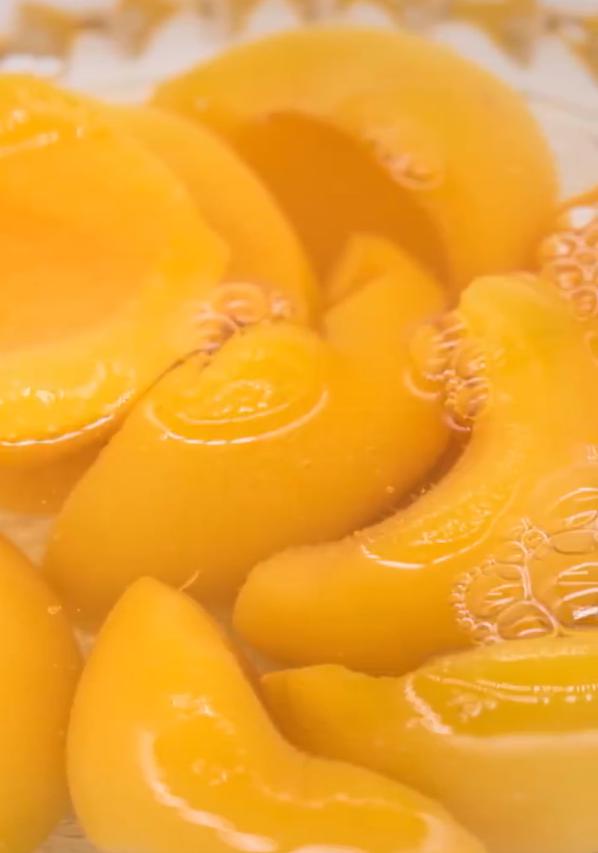The story behind Chinese love of canned peaches
By Wang Tiantian | chinadaily.com.cn | Updated: 2022-12-11 11:10

With the change of the epidemic situation, various suggestions and guidance began to appear on social media. In the midst of all the comments, one voice was particularly loud: "It is suggested that canned yellow peaches be included in medical insurance". This comes from a northern "superstition" that may not be well understood by others: regardless of the seriousness of the disease, it is better to have a canned yellow peach. Northerners, especially northeasterners, firmly believe in this ancient and mysterious "folk prescription".
A few years ago, the magic effect of canned yellow peaches was widely stir-fried on the internet, and it was given many titles, the most famous of which was "the healing magic medicine for children in the northeast or north". The so-called miraculous healing medicine is just like its name: from surgery to colds, patients can be back on their feet as soon as they eat a can of yellow peaches. This mysterious claim was once unfathomable to southern netizens until a large number of northern children came forward to prove that it was a "good medicine" when they were young. Because this phenomenon is particularly common in Northeast China, there is a folk saying that there is a god of canned yellow peaches in Northeast China who will silently bless every child in Northeast China who leaves home. In case of any serious illness or minor disaster, you can get god's blessing by eating a can. The legends about the canned yellow peach make it the most mythical food on the internet today.
However, there is no direct reason behind this mysterious "canned yellow peach" phenomenon, which is more a habit of the previous generation. The canned yellow peach has been developed for decades in China. Since 1963, the research on canned peach varieties has been included in the national subject. After many years of cultivation, research and seed selection, it has just entered the stage of mass production. As a canned food, the peach canning industry is growing rapidly. In 1981, the annual output of yellow peach cans in domestic canneries had reached 8000 tons. But even then canned yellow peaches were in demand at that time. In the 1970s and 1980s, cans were "valuable food" in the north. For ordinary families, only when visiting relatives and friends, or during the Spring Festival, can they give up a can. For children from ordinary families, they can only taste a can of peaches during the "special period". This "special period", except for birthdays and holidays, is when they are "sick". When children are sick and have a fever, their appetite is usually not good. In addition, the bitter taste of the medicine makes the sick children unwilling to take the medicine. At this time, parents will open cans of yellow peaches to feed sick children to help them take bitter medicine. Over time, this generation gained the habit of feeding yellow peaches to their children when they are ill.
In addition, people of the older generation also have certain superstitions about the fruit "peach". The ancients believed that peach branches could exorcise evil spirits, and peaches could also imply "health and longevity". In addition, in the Chinese phonetic alphabet, "peach" has the same pronunciation as "escape". Therefore, even if they know that eating canned yellow peach does not help recovery, many parents will choose to feed their children cans during and after their illness, so that they can "escape" the pain. Combined with these factors, these children who grew up eating canned peaches have had the impression that it is better to eat peaches when they are ill all their life. Although they are no longer children cared for by their parents, their bodies have already developed conditioned reflexes. Whenever they have a cold or a fever, they always want to have a delicious yellow peach. No matter whether they are sick or not, they will always feel at ease when they see a jar of yellow peaches beside them. Canned yellow peaches are not only a kind of food, but also a spiritual totem. It can symbolize "health", "rehabilitation", "peace of mind" and a time when parents took care of their children.
Finally, the canned yellow peach belongs to the "comfort foods" of a generation to some extent. "Comfort foods" is a saying that all countries have, or can be understood as "healing food", which is defined as "food that can provide nostalgia or emotional value". In case of physical or psychological problems, "comfort foods" can quickly relieve a person's pressure. According to different regions and food cultures, the mainstream "comfort foods" in each region are different: Filipinos will eat soup called arroz caldo when they are sick. Hungarians eat garlic and honey when they are sick. Pakistanis will make a porridge called khichdi. These comfort foods are very different in taste, and it seems difficult to classify them together, but they have one highly consistent thing in common: these foods were fed by parents and families to their children when they were ill. These "comfort foods", like yellow peach cans, can connect to one's childhood. Take one bite, and it is as if you can go back to that reassuring time. The rush to buy yellow headed cans is not really a feudal superstition, nor does it expect its actual effect. People just want to settle down in this treasured period.
The author is MA student majoring in English linguistics at Shandong University (Weihai).
























